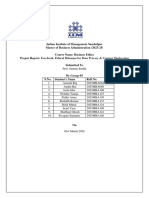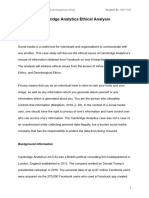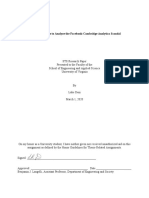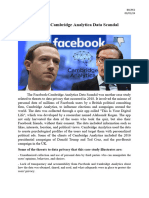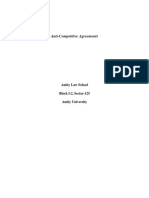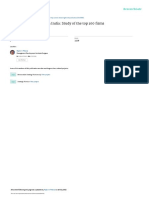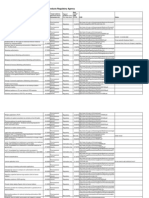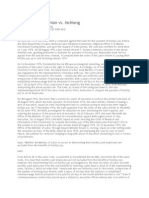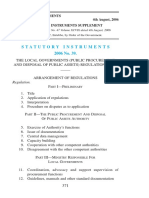0% found this document useful (0 votes)
18 views8 pagesProject 22
This project analyzes the ethical implications of data privacy through the lens of the Facebook-Cambridge Analytica scandal, which involved the unauthorized use of personal data to influence voter behavior. It highlights the ethical dilemmas of consent, corporate accountability, and data ownership, while proposing recommendations for improving data privacy practices. The study emphasizes the need for stronger regulations, transparency, and ethical standards in technology to protect user rights and maintain public trust.
Uploaded by
upeejiCopyright
© © All Rights Reserved
We take content rights seriously. If you suspect this is your content, claim it here.
Available Formats
Download as DOCX, PDF, TXT or read online on Scribd
0% found this document useful (0 votes)
18 views8 pagesProject 22
This project analyzes the ethical implications of data privacy through the lens of the Facebook-Cambridge Analytica scandal, which involved the unauthorized use of personal data to influence voter behavior. It highlights the ethical dilemmas of consent, corporate accountability, and data ownership, while proposing recommendations for improving data privacy practices. The study emphasizes the need for stronger regulations, transparency, and ethical standards in technology to protect user rights and maintain public trust.
Uploaded by
upeejiCopyright
© © All Rights Reserved
We take content rights seriously. If you suspect this is your content, claim it here.
Available Formats
Download as DOCX, PDF, TXT or read online on Scribd
/ 8













